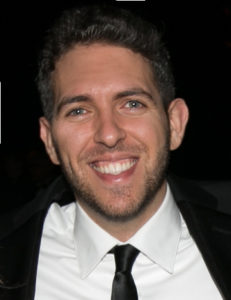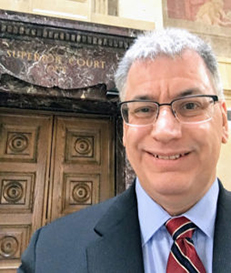The University of Lynchburg’s Doctor of Medical Science Program held an early virtual graduation ceremony today for students who have completed all degree requirements as of April 1.
Through video messages sent via email, Dr. Kenneth Garren, president of the University, and Dr. Jeremy Welsh, who directs the program, conferred DMSc degrees to 37 students. This places the total number of Lynchburg DMSc graduates at over 400 since the program started five years ago.
The students — and in many cases, their employers — had requested an earlier graduation date so they can get to work during this time of crisis, Welsh said. Many are already treating patients with COVID-19, but the DMSc degree will help them make a greater, positive impact on patients and health care systems.
“Across the nation, PAs are on the frontlines and having a massive impact on both access and affordability on patients of COVID-19,” Welsh said in his message. “We know, because we’ve listened to you, that the Doctor of Medical Science has made an impact on your ability to take care of patients, and to work on the logistics and administrative side of the health care system. We’re so proud of you.”
One of these PAs is Mordechai Sacks, who has been working at a family practice in Larchmont, N.Y. As the virus began overwhelming his community, Sacks struggled to finish his DMSc degree. At the same time, the coursework couldn’t have come at a better moment.

“I was starting my final term of the DMSc and studying Global Health Issues and Disaster Medicine,” Sacks wrote in a testimonial on the DMSc web page. “As I was hearing little bits of news of a novel virus in China, I was simultaneously learning about how we are supposed to plan for such things, and how devastating not planning would be.”
Sacks had a feeling things would get bad, so he bought extra masks for his practice.
“I saw what was happening in Wuhan, and we studied the models and knew what was going to happen here,” he said. “I would not have been as prepared for this current situation without [those DMSc courses].”
Fellow DMSc graduate and PA Craig Baumgartner agrees. “The Global Health Issues and Disaster Medicine courses provided an excellent introduction to our current situation, and could not have been more appropriately timed,” he said in an interview on the DMSc web page.
“Other courses in the DMSc program have helped my approach to the current situation as well. I know I would not be considering the impact of the current situation from a Health Law, Organizational Behavior and Leadership, and Healthcare Administration perspective if I had not had those courses.”

Before COVID-19, Baumgartner was working full-time in surgical practice at NorthShore University HealthSystem in Glenview, Illinois, and part-time with Premise Health at Chicago O’Hare Airport, where he treats United Airlines employees.
Once the virus hit the U.S., he began taking care of COVID-19 patients.
“All surgical PAs at my hospital are staffing triage tents, ER, hospitalist, and ICU services,” Baumgartner said. “My hospital has been designated as the ‘respiratory hospital’ within our system. … I feel fortunate to have previous triage, ER, hospitalist, and ICU experience; the majority of my surgical PA colleagues do not.
“I will be helping my colleagues learn these different areas of medicine as we take care of the COVID-19 patients together.”

